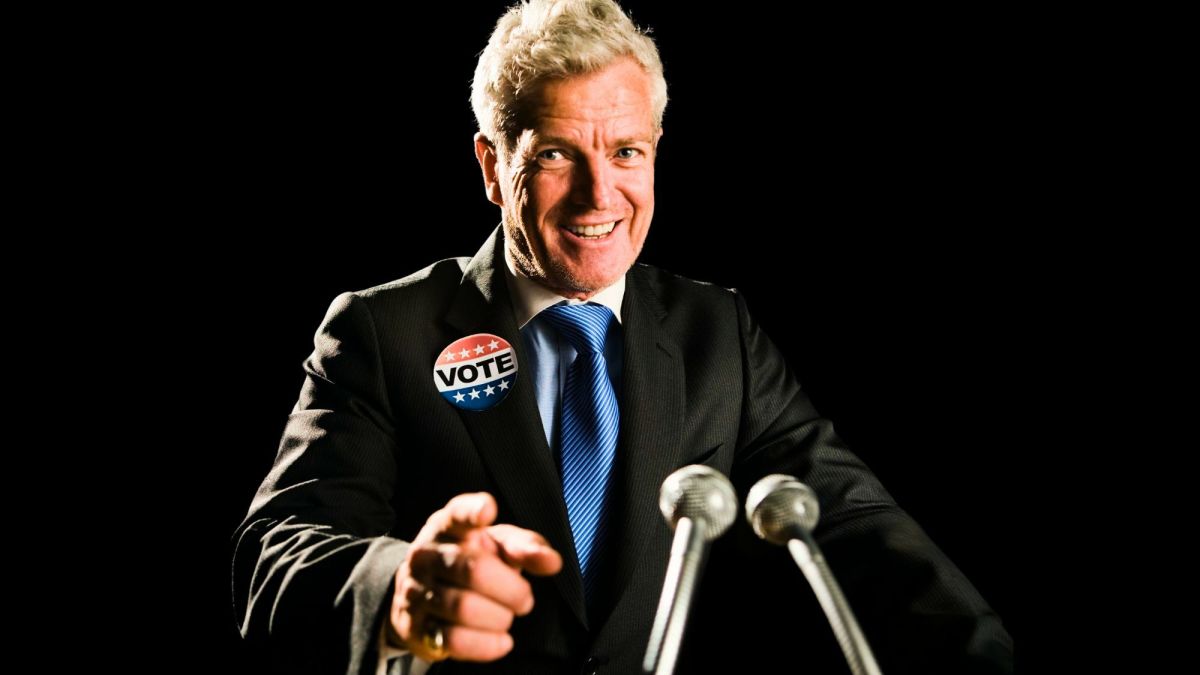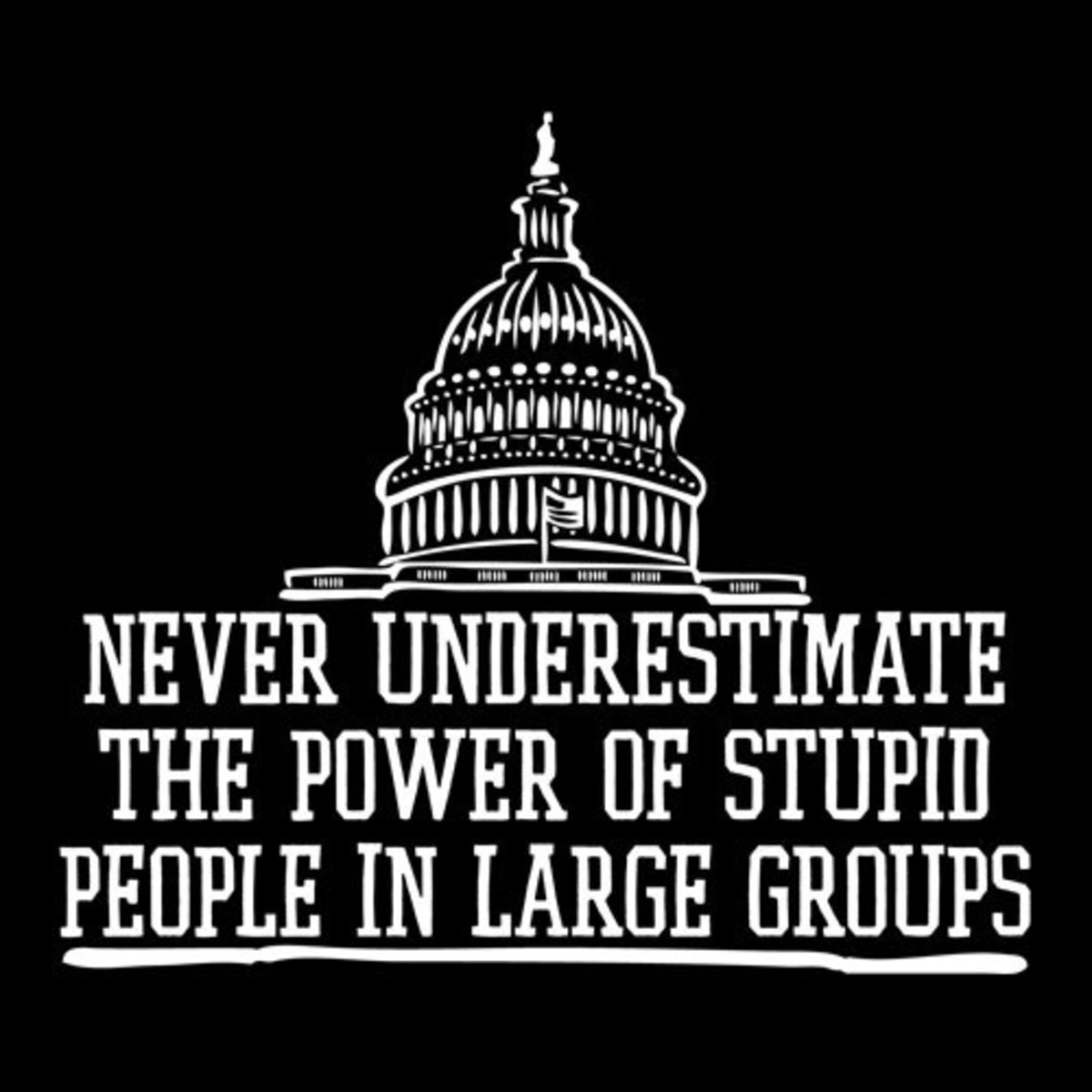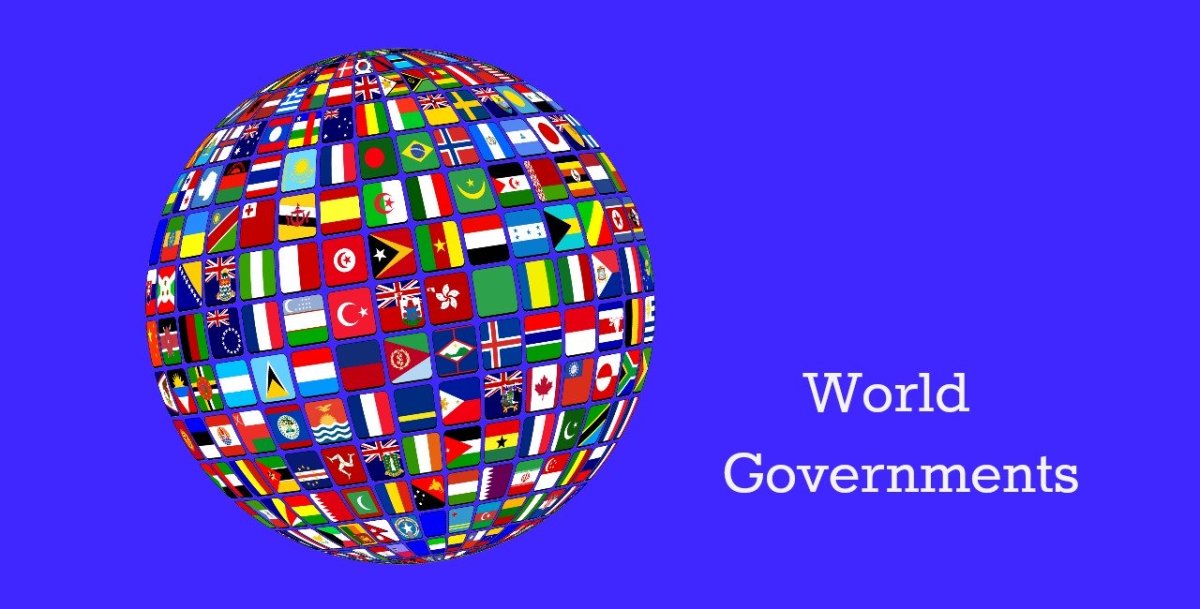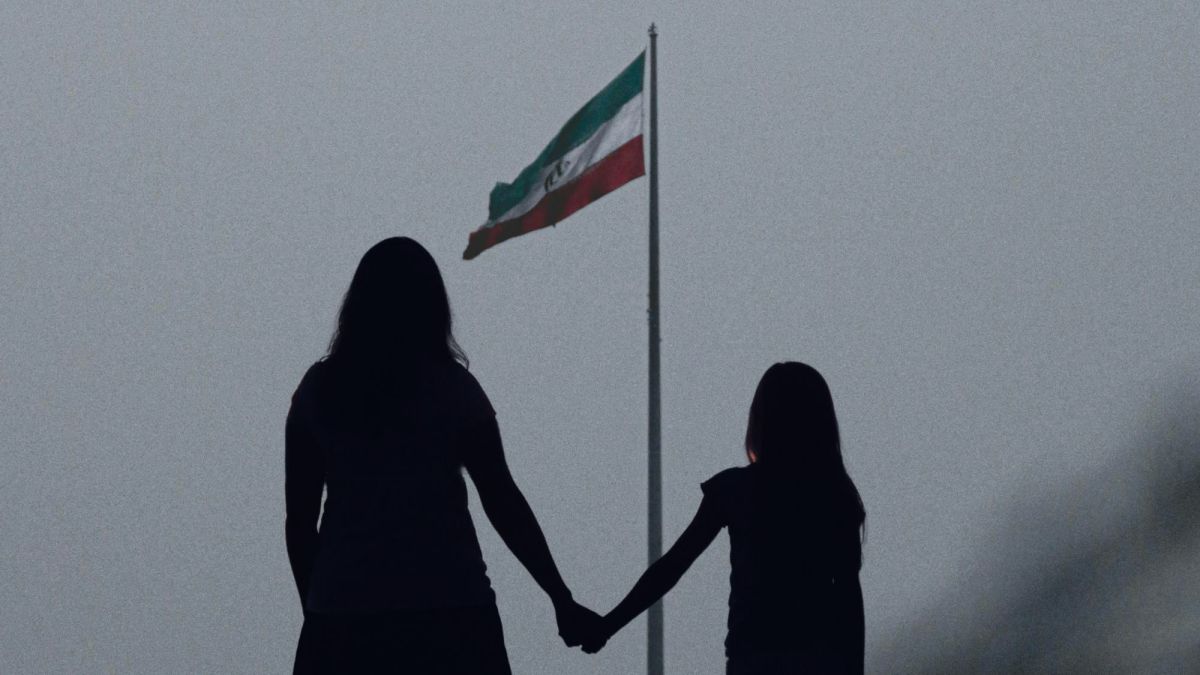The Economics of Politics
Rules that rule the rulers

Public an ass?
“In the world of the political philosophers, it is angels that play politics while in the real world it is politicians ”
Is ‘Public an ass’? Yes, they are, especially, in a democracy for in an autocracy, at least, they have the excuse that they are afraid. They are an ass because they support some or other political party/politician, more or less blindly. The so-called game changers, the people who vote for different parties, the “non vote-banks” or the “nonhardcore supporters” are also not ‘people who think’ when they vote. Coming to think about it, they are, probably, more selfish than idiots. So why do I think they are asses? Not for the reason the politicians call them asses, for supporting them blindly, but for not knowing the cardinal rules of politics. So what are those rules?
The first rule is
All politicians rule for themselves.
Yes, everyone whether he is a Democrat or a Tyrant, whether he is republican or dictator, they all rule for themselves and their own good, not for anyone else’s, let alone the public’s welfare. I am not saying that there is no one who wants to do good to the people, there is none who wants to help the public, what I am saying is that they CANNOT help the public, they are (forced) to keep that goal secondary and helping themselves as primary. If they do not, they will get nowhere, let alone places of power, to do any good. Why is it so? Because of another rule.
No one can rule alone.
Though this seems obvious, people usually forget this. What does this really mean? It means that not even the most powerful can rule without the support of others. That is, if other people do not support him, he is no more powerful than the ordinary folk, whether he is the most powerful King or dictator. It is his ability to influence others to do his bidding that makes him powerful. It is true irrespective of whether he is Augustus Caesar, Idi Amin, Akbar or Obama. Every man of power needs the support of people from whom he draws his power; let us call the ‘power base’. Cut him off this power base and he is none. The only difference from an autocratic King from a Democrat is in the number of people from whom he draws power, that is, the size of his power base. An autocrat only needs a small power base while a Democrat needs a larger one. After all, it is the ability to influence others and make them do our bidding we call power. It is the same reason we say money is power.Why the powerbase choose to be influenced?
So why do these people, the power base, support him? Why the powerbase choose to be influenced? Because they get something in return for their support. They get power, wealth or some other perks. The success of democracy is the wide base of the power base and the limitation is that even that power base is not large enough to include even half the population. So let us examine this a little more closely, first from the autocratic point of view and then a Democrat's view.
Before that, we should know what a government is. A government is a mechanism to extract “rent” (as the political philosophers call it and tax, as we know it) from the public and distribute it among the people who govern. That means it is a system by which money or other resources are extracted from the people it rules, the public, and distribute among the people who form the government (the elite). As Mancur Olson puts it, the government is a stationary bandit. Just like good bandits, it takes resources from others and distributes it among themselves.
(In case of family, it's natural that the breadwinner, father, has power. Physical strength is also an asset if the opponents are weak. Obviously, this can work only in small societies. If the wife becomes a breadwinner husband's power decreases - the reason why traditional societies dislike working women. If the weak can garner enough support to overpower the strong, he loses power)
In the matter of governance, democracy stands at one end and autocracy at the opposite. In the former everybody’s opinion count and is given equal weight. Alternatively, in our terms and more importantly, it is the government’s/societies resources are equally distributed. That is each one has an equal share in the rent or taxes. On the opposite extreme, autocracy, the autocrat himself keeps all the rent, only his opinion counts. All the other formers of government are in between. Now itself it is clear that pure/ideal democracy can occur only in heaven. On earth, there are minorities or neglected (maybe by necessity) people who do not get it. Similarly only god can be a pure/ideal autocrat. In reality, the forms are in between.
Let us come back to or autocrat, so how does he see it? He, most of the time, depends on the military for support. He takes from his citizens and gives it to the generals. Here lies his problem if he takes too much his resource base will shrink. Either they will run away, will be broken so much as not able to produce the resources he covets or will support a contender and revolt which will eat away the resources he collected by trying to suppress the revolt. If he gives fewer resources to his support base, they will stop supporting him and may support someone who will offer more and he will lose. Therefore, he has to walk a tightrope and balance. He is always faced with the problem of a contender who may offer more, but as long as he gives enough to keep his supporters satisfied and do not allow anyone else to form an alternative support base, he will prevail. This also prevents him from giving too much for the public good, for one he will not have many resources to spare after allotting for himself and his supporters and any such move will give more freedom to the people that will help them organize and overthrow him for another. That is, he has nothing to gain by the public works but may lose a lot by that. So he cannot do much to increase his resource base other than through conquests because anything that may improve the productivity of the people can increase the chance of his overthrow by creating rebels who covet his position and help people organize themselves against him. This is why we do not see much progress in autocratic societies because any progress needs more interaction among people, which may foment rebellion. But we can see a lot more “development” among his supporters for this very reason. Though an autocrat wants to keep all the wealth he extracts, that will lose him his supporters and deprive him of the needed protection from the masses who want to kill him for robbing them and the rivals who want to usurp his position.
Let us turn to a Democrat. As I already said, a Democrat is differentiated only by the size of his power base. In a pure democracy, he needs everyone’s support while in a real society he needs only the support of the majority. Let us take the scenario of only two contenders, which means he needs 50% plus 1 people's support to get his presidency. On closer look, he does not need 50% because there are some who cannot or will not go to the polling booth. That is, he needs the support of only 50% of the voting people, which is always less than the half of the population. Still let us take it 50% for the time being. He has to take the resources from all the people and give it to the 50% of the people (a little more than that, as he has no way of knowing who is supporting him and who is not), unlike an autocrat who needs to give it among only a handful of people. When someone gives to 50% naturally, it will improve the general lot and lift even those who do not support him, which help him get more resources, which again can increase the support base. Then why are democracies not a heaven? The reason is he does not need the support of even 50% but less than 25%. Why? We already said some people who do not go to the polling booth, add to that, in general, there is no direct vote or the election is not always confined to two contenders. Let us take if there are three contenders, in that case, he needs the support of just above 33%. Therefore, it is in his best interests to have as many contenders as possible. That is, he needs just one vote more than the next contender does. Now let us take that his country has only three constituencies, and each has one vote. In this case, he needs the support of only two constituencies, and he only needs half the people’s support from each of the two. He may even redraw the constituencies that he gets a majority in each. So, as the number of constituencies and contenders increases he needs fewer people to support him and he only needs to take care of those people who support him. So if he does something to increase the general public welfare, which is detrimental to the interests of his supporters he will lose their support and he may not gain any new support by it which can cost him his job. So he cannot do anything that alienates his supporters and he will always have to do things to keep his support base, though large compared to an autocrat, still fewer, less than 25% population. This is the reason by we see that most parties, whatever their pro-poor slogans, support the big multinationals once they reach power because that is from where they get their resources to buy support. If they fail to get the support, if they fail to play the game, they will never get into the corridor of power to do themselves, let alone the public, any good. Therefore, it comes to this, whether democracy or autocracy, all governments are in effect oligarchies, a few ruling all, to extract resources from the whole to distribute among the few. The only difference is in the number of the few. What we can be sure of, is that whatever the number of the few, it never exceeds 50% of the population.
Indoctrination: - Indoctrination is another method to get support at low cost. Indoctrinated people will support even if they didn't get any physical benefit. More money will be available for the ruling elites. This is the reason why rulers always tried to get the support of ideologies. This is the success of theocracies. This is why autocrats even democrats invoke 'god' or tradition in their speeches. This is also one of the reasons for the success of communism. So why is this not very important, because it works only with foot soldiers? Those who can get to the top are intelligent enough not to be indoctrinated or even if indoctrinated is wise enough to look after their own interests first. This is why the top dogs of even fanatical organizations are rich and are never seen at the front line. This is why leaders never practice what they preach and almost all suicide attackers are foot soldiers.
People, do not understand this, either blindly support the politicians or sell support at the cost of the general good. Even if they understand, they feign they do not for it is that brings them good. In the long run, we are all ‘short-term’ selfish even at the costs of public good and our own or our future generations good. Hence ‘publicum est asinus’.
We have to find a system that will take care of all the people, a system that runs on everyone's support. Until then we have to run with democracy. After all, “democracy is the worst form of government, except for all the others.” (Winston S. Churchill).
Anarchy, though, is the best form of government with the caveat ‘till everyone works for everyone else’s good’, till then we have to wait for that Utopia.
Implications
We have found that whatever ideology is praised that is not what happens. Ideologies are used only for garnering political support. People do not bring ideologies, but if there are enough people that support the ideology, they can bring themselves to power and if they have at least 25% support or military support, they can put that ideology in practice if it does not cause the withdrawal of the support of supporters. Unlike what the political philosophers say, ideologies have only a secondary role. It all depends on the support needed by the ruler. That will help us tell why we cannot transplant democracy anywhere else. Unless there are enough people, people who are motivated and who can impose, it is not going to work. So Americas efforts to export democracy anywhere else is doomed to failure. There are not enough people in power who need such a mass public support. If America imposes someone, their support base will be America and they will have no reason to put democracy. If America withdraws support, they will have to raise money from somewhere else, if they want to continue. If they did not, someone else will take over and even if they need more support that will still be short of the support that is needed to call it a democracy
Implications
We have found that whatever ideology is praised that is not what happens. Ideologies are used only for garnering political support. People do not bring ideologies, but if there are enough people that support the ideology, they can bring themselves to power and if they have at least 25% support or military support, they can put that ideology in practice if it does not cause the withdrawal of the support of supporters. Unlike what the political philosophers say, ideologies have only a secondary role. It all depends on the support needed by the ruler. That will help us tell why we cannot transplant democracy anywhere else. Unless there are enough people, people who are motivated and who can impose, it is not going to work. So Americas efforts to export democracy anywhere else is doomed to failure. There are not enough people in power who need such a mass public support. If America imposes someone, their support base will be America and they will have no reason to put democracy. If America withdraws support, they will have to raise money from somewhere else, if they want to continue. If they did not, someone else will take over and even if they need more support that will still be short of the support that is needed to call it a democracy.








